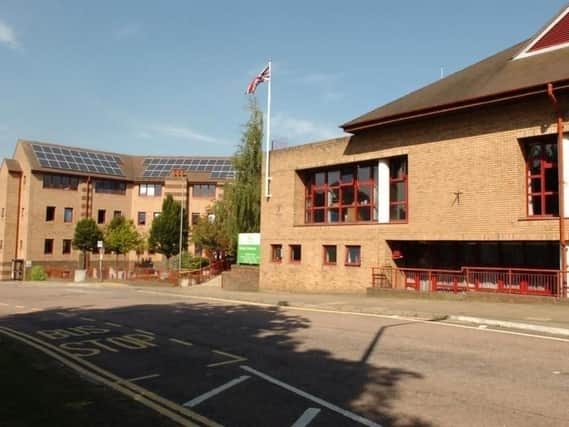Daventry 'wasteland' disposed to private firm as council lacked 'resources' to kickstart development


The Knoll, a steep parcel of land in the Marches industrial estate, will be leased out for 200 years to the Claymore Group, which wants to build up to 7,000 square metres of commercial floorspace.
The authority says it ‘does not have the resources available’ to pursue a profitable development itself on the land.
Advertisement
Hide AdAdvertisement
Hide AdDaventry District Council can, however, break the lease if Claymore has not been given planning permission within three years, and not progressed with any building within five years.
Speaking at the authority’s strategy group meeting on Thursday (October 11), Councillor David James said The Knoll was ‘vacant and overgrown’.
He said: “It’s a last-ditch attempt to try and get some sort of development on The Knoll which would increase industrial space and provide employment and jobs, and it would cost us nothing to do it, and make use of a piece of wasteland.”
Councillor Alan Hills added: “Ever since I joined the council many years ago, The Knoll every now and then rears its ugly head as to how we can best use out of it.
Advertisement
Hide AdAdvertisement
Hide Ad“I can remember going on various site visits, and if we can get use into this I think it’s definitely worth supporting.”
But Councillor Ken Ritchie questioned why the council itself could not make a profit on the land if Claymore felt it was able to.
The Labour councillor was told that the authority did not have sufficient resources to be able to take any schemes forward for The Knoll, but Councillor Ritchie added: “The larger body that will take our place may have a need to make a profit somewhere.”
Claymore will not pay rent for the lease, but if the land value exceeds an agreed benchmark then the council would receive a small proportion of the additional profit.
Similarly, if the site did somehow become viable for housing, then the authority would have the opportunity to share in the enhanced value created.